Heartburn, a burning sensation in the chest and throat, is not uncommon. Even healthy people might experience it. Though it's not typically harmful, heartburn could indicate other problems concerning the upper digestive system.
Continuous or consistent heartburn requires a thorough check-up and medical care.
Heartburn can occur in older people, young people, and even children. It usually occurs after a meal or during sleep. Sometimes, heartburn can be confused with different symptoms. A thorough medical history and symptom analysis is the basis for diagnosis. Treatment of heartburn includes lifestyle modification and medication.

The general cause of heartburn is the backflow of gastric contents into the esophagus, which results in a burning feeling behind the sternum. The movement of acidic refluxed material![]()
with digested food towards the esophagus can irritate the delicate oesophageal mucosa. This is because the oesophageal epithelium is not adapted to contact with acid.
Usually, the lower oesophageal sphincter prevents the stomach contents from flowing into the esophagus. It should close when the food content enters the stomach. In healthy people with a well-functioning lower oesophageal sphincter, only a tiny amount of acid enters the upper gastrointestinal tract. Heartburn occurs when this mechanism is not working correctly. When this muscle does not contract properly and is excessively relaxed, more gastric juice enters the esophagus, causing heartburn symptoms.
The causes of a malfunctioning lower oesophageal sphincter can be various. If heartburn occurs occasionally, it should not cause concern. Thus, sometimes heartburn is a symptom of a disease related to the esophagus. Causes of the heartburn symptom include:


Improper diet – Certain meals might make heartburn more likely. Foods high in fats often lead to heartburn – they slow down how fast your stomach empties. Consuming over-processed and deep-fried foods, sweet stuff, and trans fats might result in heartburn. These food picks aren't easy to digest and thus stay in your stomach for longer. Plus, items that make your stomach create more acids also lead to heartburn. Examples are coffee, alcohol, and spicy foods. The extra acids bother the feelers in the lining of your food pipe, triggering heartburn.
Overeating – Overeating food can cause heartburn and different gastrointestinal complaints. An overly full stomach increases pressure in the abdominal cavity, which causes the oesophageal sphincter to relax and not cope with the large volume of stomach contents. Hence, the backflow of food into the esophagus causes heartburn. In addition to heartburn, overeating can cause nausea and abdominal pain.
Anatomical disorders – Heartburn can be caused by anatomical disorders such as a hernia![]()
of the oesophageal hiatus and abnormal oesophageal motility. A hiatal hernia is a disorder of the anatomy of the gastrointestinal tract that results in part of the stomach moving into the thorax through the diaphragmatic foramen. In contrast, abnormal oesophageal motility, or achalasia, is characterized by impaired diastole of the lower oesophageal sphincter and lack of movement of the middle part of the esophagus.
Gastric reflux – Heartburn often suggests gastroesophageal reflux disease (GERD)![]()
. It involves stomach stuff reversing into the esophagus. Even healthy people can experience reflux a few times daily with no symptoms. But if reflux begins to cause problems or symptoms, we call it oesophageal reflux disease. Common signs of reflux include heartburn, hollow burping, and a sensation of stomach stuff moving up into the esophagus. Folks frequently report feelings like fiery sternum discomfort, over-acidity, acid backwash, or high belly pain.
Oesophagitis – The disease can also be the cause of heartburn. Oesophagitis![]()
can be an acute or chronic inflammatory disease associated with damage to the mucosa. Irritant or infectious agents damage it and weaken the integrity of the epithelium. Regular provocative infiltration weakens the oesophageal wall and deforms the blood supply by forming erosions and ulcers. Heartburn and pain during swallowing occur, in addition to general symptoms of infection such as fever.
Pregnancy – Pregnant women may experience heartburn symptoms more frequently. When a baby grows in the womb, it pushes some organs aside. Mixed with hormones that loosen muscles and joints, this causes a rise in abdominal pressure. This can often result in heartburn.
Medicines – Certain drugs may trigger heartburn as well. Low pH substances and aspirin can fire up stomach acids. If these leak out of the stomach, heartburn can happen. So, always use caution when taking meds with acetylsalicylic acid![]()
.
Smoking – Smoking is a very unhealthy habit that also increases the risk of heartburn. Nicotine affects the relaxation of the lower oesophageal sphincter, preventing gastric contents from entering the esophagus. Thus, heartburn can also result from fasting cigarette smoking. Smoking also irritates the mucous membranes of the digestive and respiratory systems.
Obesity – Obesity increases intra-abdominal pressure, leading to stomach compression and reflux. Studies have shown that weight reduction reduces the risk of heartburn. In addition to heartburn, obesity increases the likelihood of gallbladder disease and liver problems due to liver steatosis, which can cause steatohepatitis in some obese patients.


Usually, heartburn complaints occur after a meal, when lying down or bending over. Heartburn symptoms, associated with the backflow of gastric contents into the esophagus, usually occur up to an hour after a meal. Heartburn symptoms should not be confused with symptoms of ischaemic heart disease![]()
. Characteristic heartburn symptoms include:
Burning sensation behind the sternum – Heartburn is a burning feeling in the chest, usually occurring behind the sternum, sometimes radiating even into the throat. Chest pain that originates from the heart or even a heart attack can sometimes be mistaken for heartburn. In this case, the pain intensifies after a meal, after going to bed, but also after going out in the air in cold weather.
Sour taste in the mouth – There may also be a bad taste on the tongue and sour or bitter reflux. The sour taste in the mouth is an overproduction of gastric juices. A prolonged unpleasant taste in the mouth may herald various ailments. The unpleasant aftertaste in the mouth accompanies some diseases, such as gallstones or gastric reflux. Sometimes, it is associated with bad breath.
Cough – A dry cough can also occur with heartburn. As a result of heartburn, some of the gastric contents are also forced into the airways. It can cause hoarseness and a dry cough. These symptoms mainly occur in the morning. In addition to heartburn, a dry cough may indicate a viral respiratory infection.
Sore throat – This symptom is the result of irritation of the mucous membrane. It is often accompanied by the sensation of food getting stuck in the esophagus. Stomach acid, which moves more quickly towards the throat when lying down, irritates the oesophageal mucosa and causes heartburn. In addition to heartburn, a sore throat can be a sign of a common cold or dryness of the mucous membranes.


Treatment of heartburn depends on the intensity and frequency of the symptom. It is, therefore, essential to determine the cause. Sometimes, heartburn is caused by a poor diet, which is enough to change eating habits. Medications are also available to reduce the discomfort of heartburn.
Medicines available from the pharmacy are effective in helping to get rid of the burning sensation in the retrosternal area. You can turn to antacids![]()
based on magnesium, aluminum, or calcium hydroxides as tablets for occasional heartburn. These heartburn remedies can also be used safely during pregnancy. Their great advantage is their rapidity of action. The effect appears just a few moments after taking these medicines.
Treatment of heartburn in the case of reflux disease often requires long-term use of medications that reduce hydrochloric acid production in the stomach. Drugs from the proton pump inhibitor![]()
group are mainly used. The effect of these drugs appears after several hours, depending on the specific preparation. Thus, they do not provide immediate relief like the antacids mentioned above, but their effect is much longer.
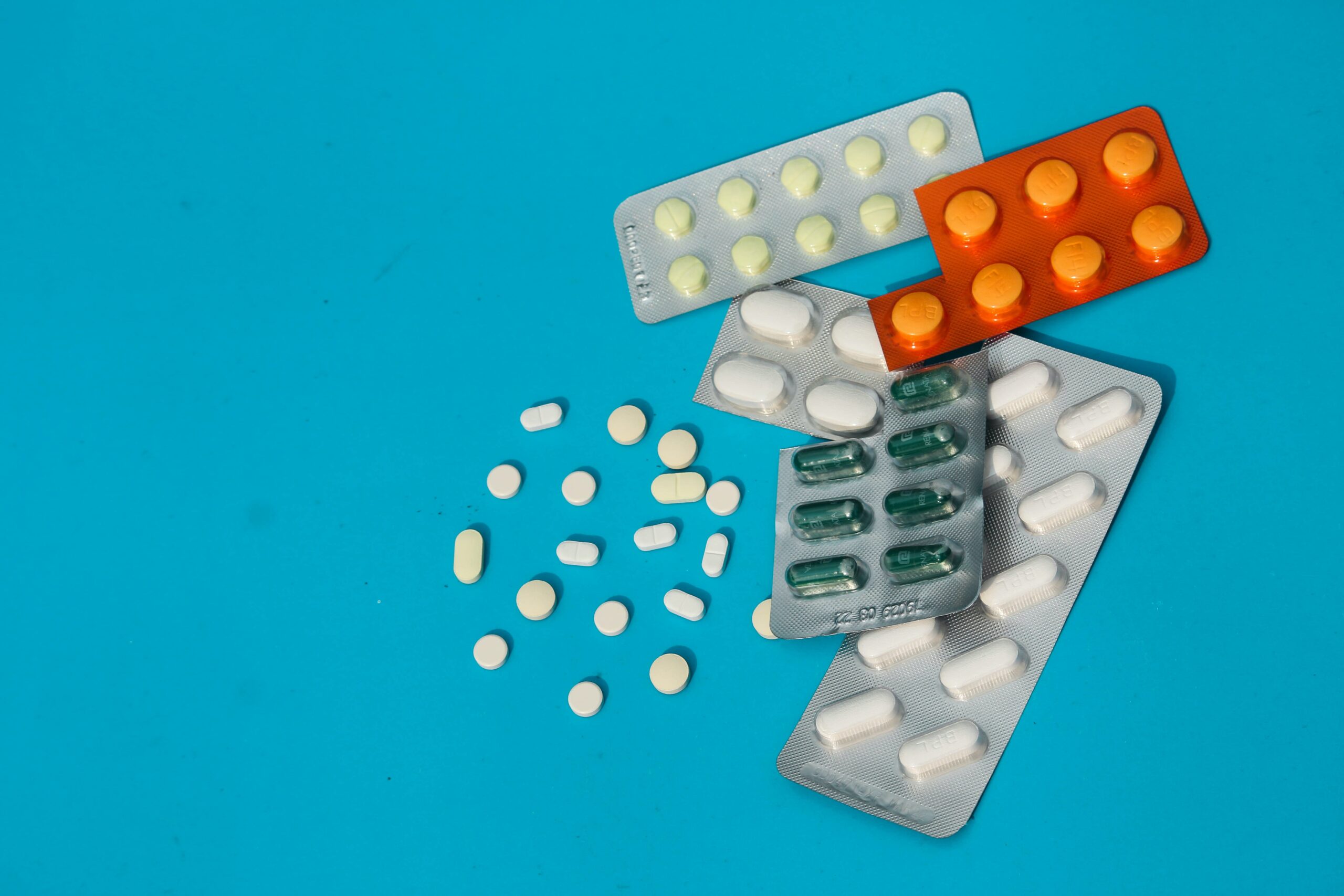

There are several remedies to help prevent and relieve heartburn. Sometimes, to get rid of heartburn, a change in diet is all that is needed. Foods and substances that trigger heartburn should be avoided. It is advisable to avoid heavy and fatty foods. Taking meals in small portions and eating up to three hours before bedtime is also beneficial. Maintaining an average body weight and, if overweight or obese, losing weight and giving up smoking and alcohol will help.
Home remedies for heartburn also include sucking or chewing fresh ginger root, which is known to inhibit nausea and relieve inflammation of the digestive tract. Stopping taking non-steroidal anti-inflammatory drugs![]()
(NSAIDs), i.e., those containing acetylsalicylic acid, will also be an excellent way to avoid heartburn.
If heartburn is suspected to be a side effect of the drugs, it may be necessary to discontinue them or reduce the dose. However, it should not be done without consulting your doctor. If heartburn occurs frequently or at high intensity, home remedies are not sufficient to relieve heartburn.


Sometimes, brief bouts of heartburn are not worrisome. Yet, if heartburn signals gastric reflux, it can lead to complications if not addressed. Chronic in nature, Gastroesophageal reflux disease needs steady treatment. This helps manage pain and dodge issues. The problems could be:
Gastrointestinal bleeding – Throwing up blood shows a sign of upper gastrointestinal bleeding. Don't forget, alarm features of gastroesophageal reflux disease like upper digestive tract bleeding, shedding pounds, feeling ill and trouble swallowing need immediate medical attention. There are countless reasons why gastrointestinal bleeding could happen.
Oesophageal stricture – When the insides of the oesophagus come into contact with acidic stomach fluids, the result is swelling and shrinkage of the esophageal passage. This trouble leads to a smaller esophagus hole, most often causing problems swallowing solid food. Dysphagia shows up as coughing, sensations of food getting stuck, reflex of wanting to throw up, and feeling pain when swallowing.
Oesophageal cancer – Oesophageal cancer is a malignant neoplastic lesion. Two main types are distinguished: squamous cell carcinoma, which originates from the squamous epithelium, and adenocarcinoma, which originates from the glandular epithelium. Oesophageal cancer is usually asymptomatic at the initial stage. Over time, dysphagia, painful swallowing, and weight loss occur. Due to the uncharacteristic and often underestimated patients' initial symptoms of malignant oesophageal cancer, it is usually diagnosed at a significant level.


Heartburn during pregnancy is a common occurrence. One of its leading causes is the pressure of the growing uterus on the stomach and an increase in progesterone hormones![]()
that affect the smooth muscles of the digestive tract. Dietary mistakes also play a significant role in causing hyperacidity.
Persistent, even acute heartburn will not harm the woman and child's health. It only causes considerable discomfort, which can be alleviated in several ways. You can reduce the symptoms of heartburn with a proper diet. If your diet does not lessen the acid reflux, it is worth seeing your doctor.
A woman suffering from heartburn during pregnancy should use drug therapy that is safe for the baby. A good heartburn medicine contains substances with properties that neutralize the effects of stomach acids. However, it is important to remember that you should not take any medication during pregnancy without first consulting health care professional.
Heartburn creates a burning sensation in your chest and throat. Everyone gets heartburn sometimes, even children. It's not usually dangerous, but you should seek medical advice if you get it a lot or if it sticks around for a while. This is because heartburn could point to other issues with your digestion.
Heartburn often comes post-meal or during slumber. It's akin to a fiery sensation positioned behind the breastbone. Heartburn occurs when stomach acid escapes up toward your throat mingled with food, which can induce a painful sensation in your throat.
There's not a one-size-fits-all reason as to why this might occur. It's typical to experience heartburn occasionally. If it's a frequent event, there could be an issue with your digestion. It's easy to mix up heartburn with other health problems. Therefore, to accurately identify heartburn, doctors take into account all signs alongside your health background.
There are various methods to manage heartburn, which may mean lifestyle adjustments or over-the-counter medications. Pregnancy often triggers heartburn. Thus, if you're expecting and suffering from heartburn, it's best to consult your doctor prior to taking any medication.
Table of Contents
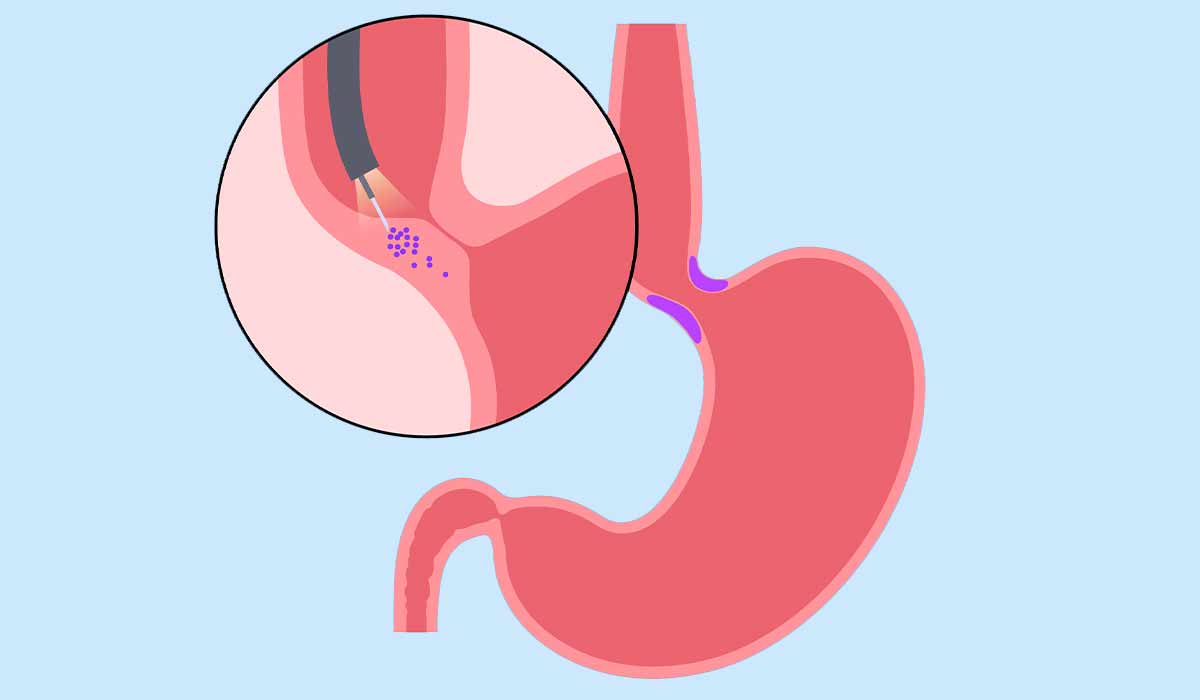

Achalasia is a motor disease of the esophagus. What are the causes and symptoms of achalasia? You can find this… read more »
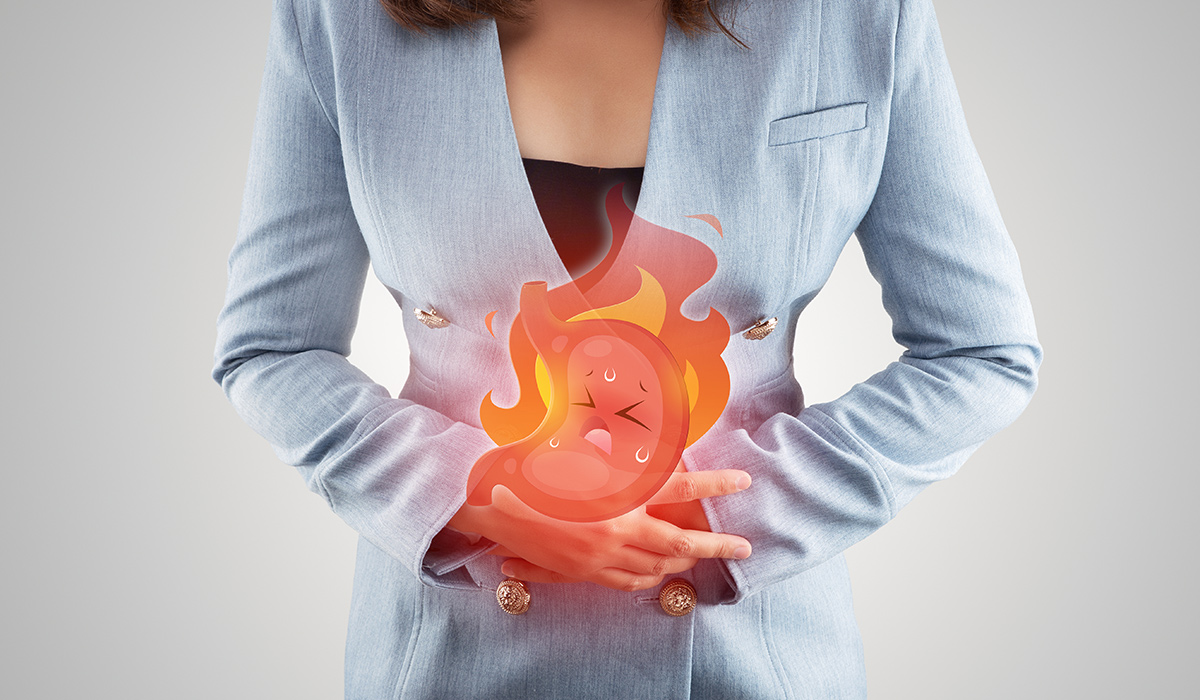

In chronic acid reflux, also known as gastroesophageal reflux disease (GERD), excessive acid in the stomach flows back to the… read more »
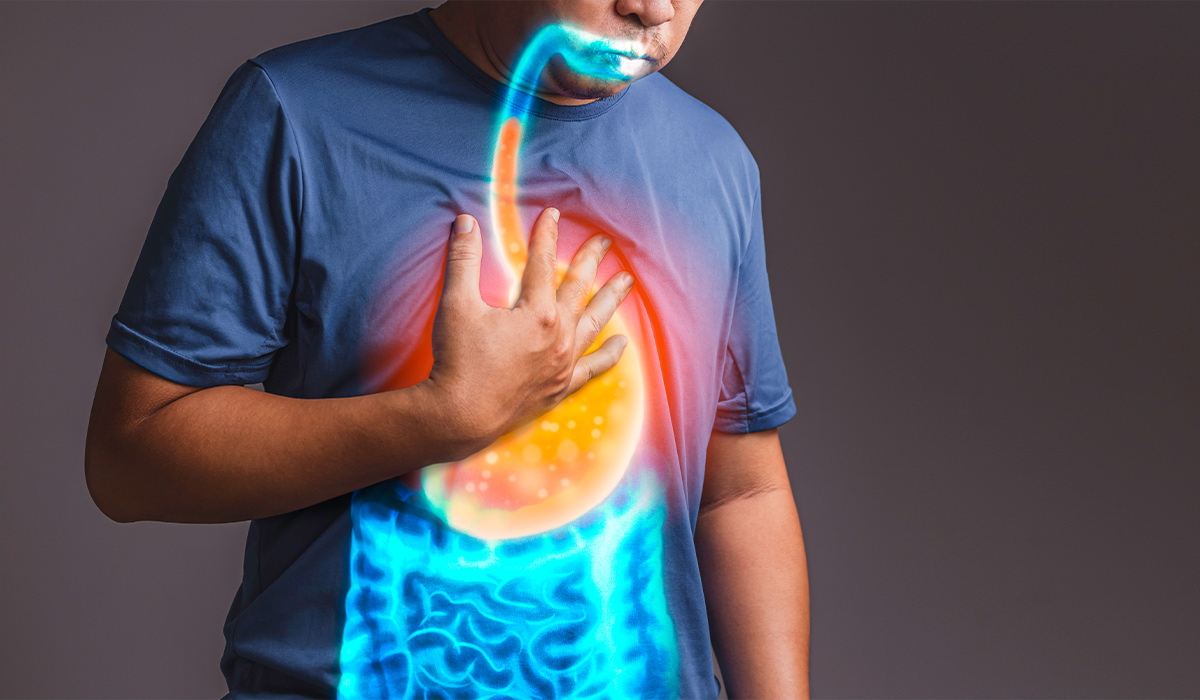

GERD is a condition in which stomach contents flow back into the esophagus. If you feel heartburn and a burning… read more »
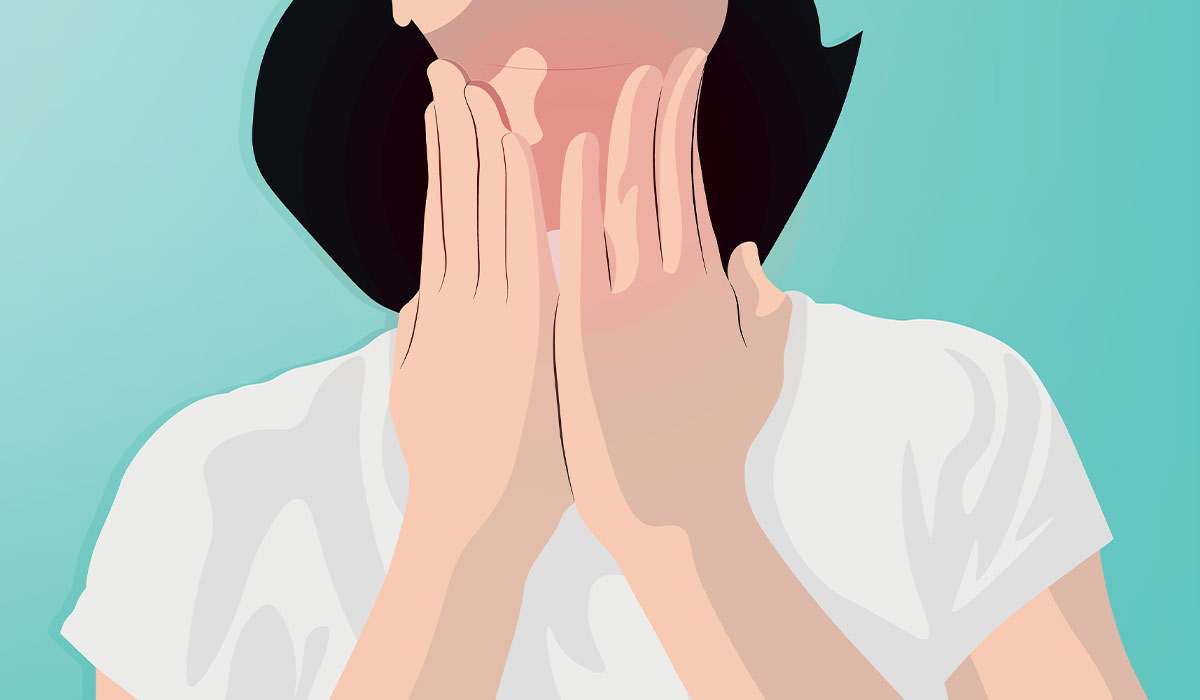

Esophagitis is inflammation of the esophagus. Most often, it is caused by acid reflux. What are its symptoms? How is… read more »
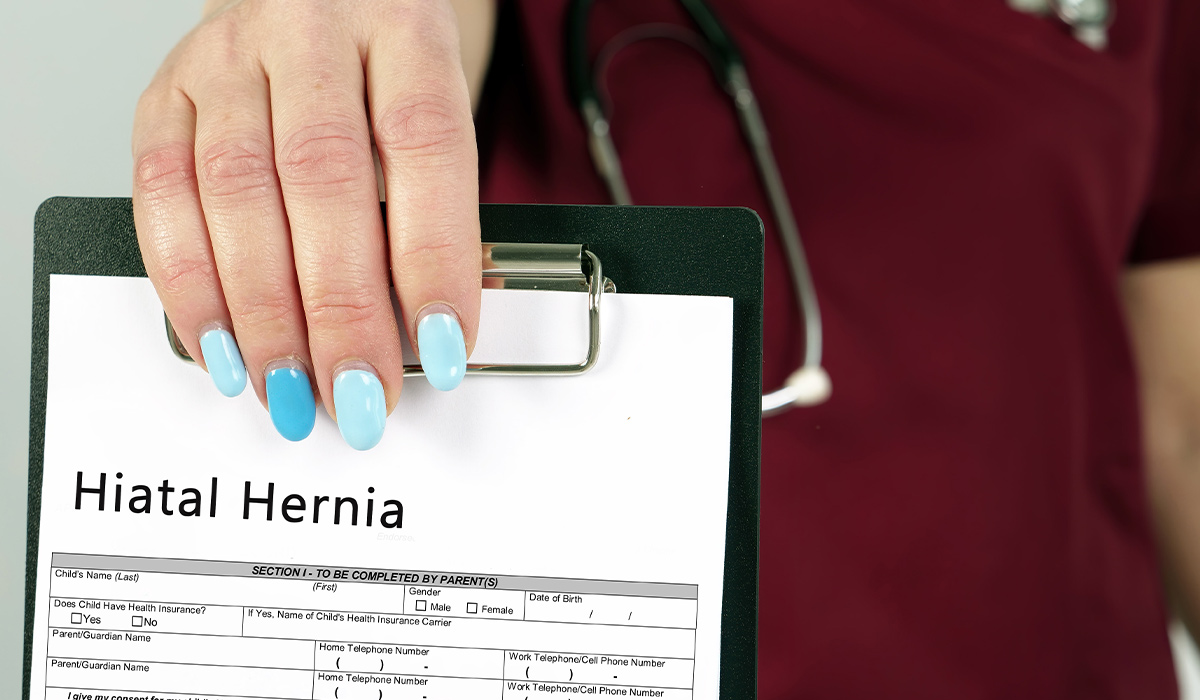

A hiatal hernia is a condition where the upper part of the stomach protrudes into the chest. Who is at… read more »
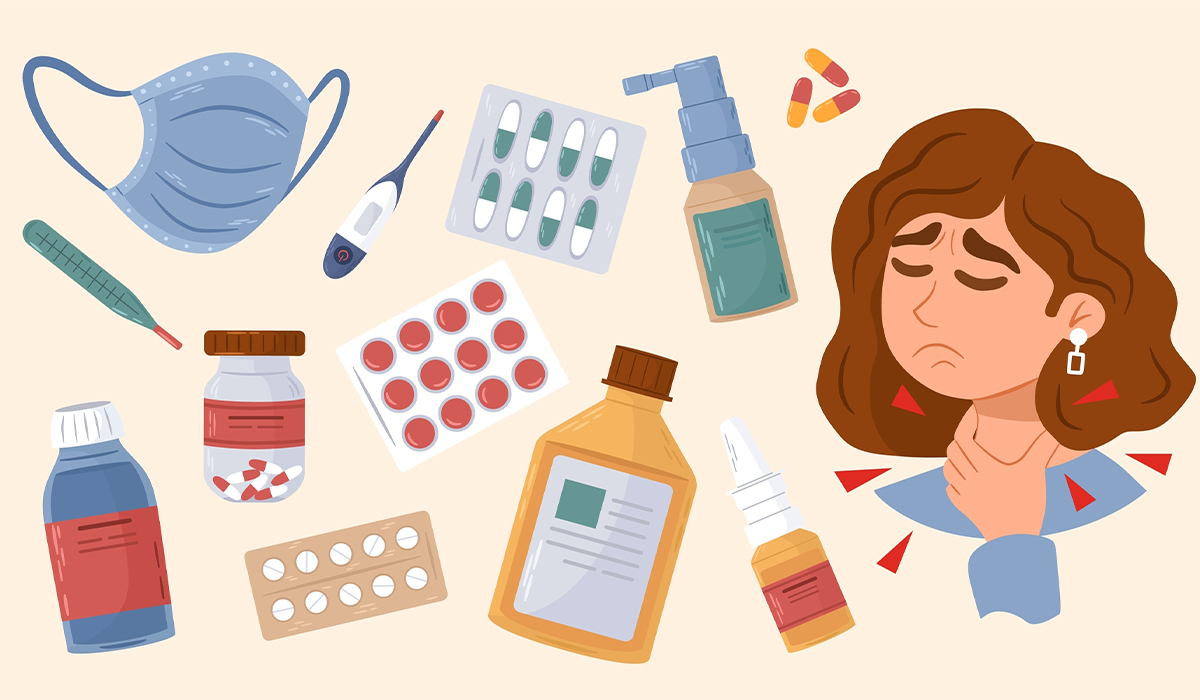

Discover Sore Throat Remedies for quick and effective pain relief. Many herbs and foods have healing properties. Learn how to… read more »


Gastritis is a common disease of the digestive system, characterized by various symptoms. See what causes this disease and learn… read more »
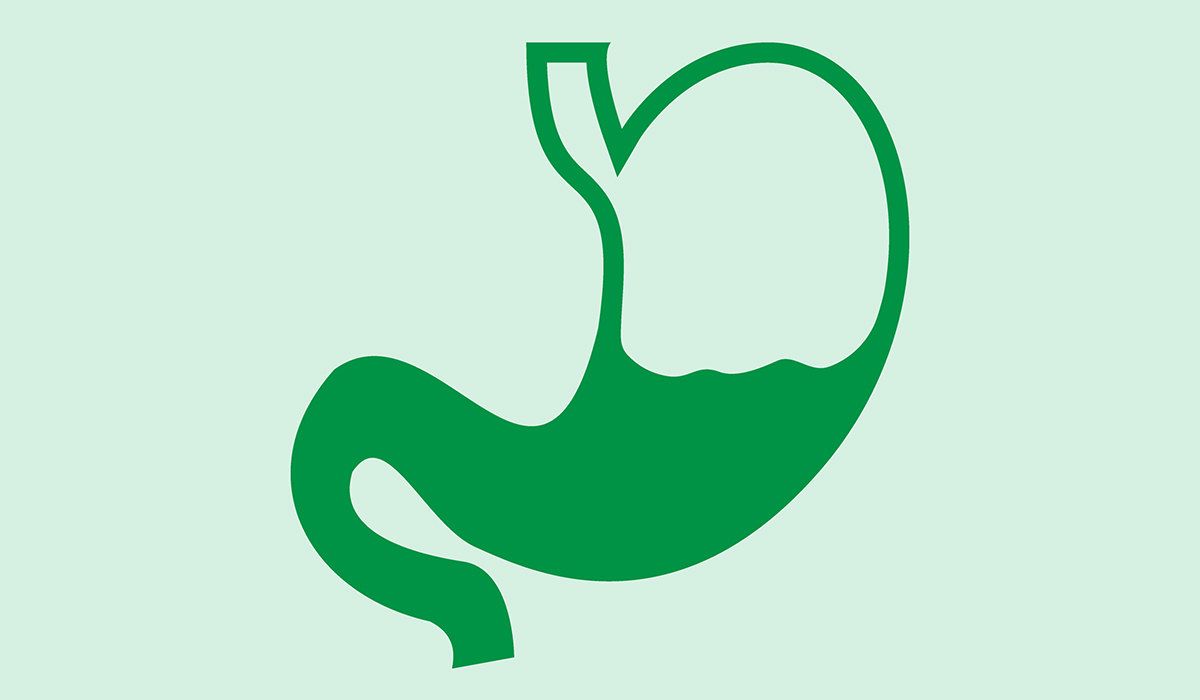

Gastroparesis is a disorder of the motility of the stomach. The disease causes many unpleasant symptoms. Find out how to… read more »
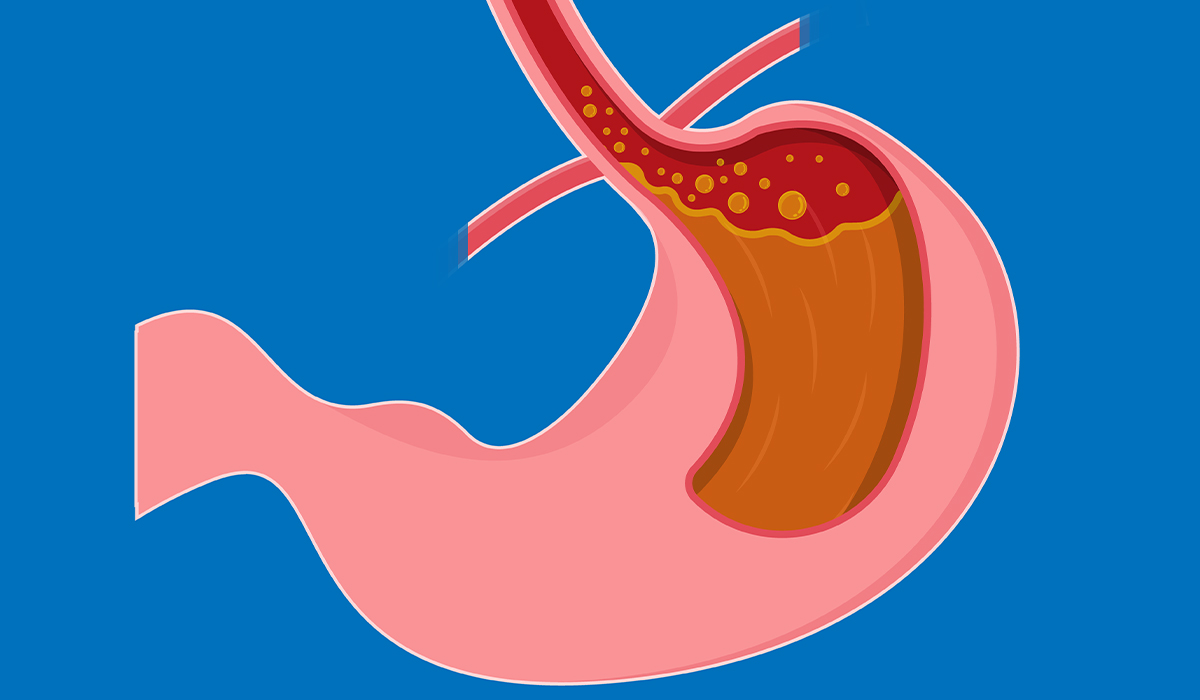

Zollinger-Ellison Syndrome is a condition that can cause uncharacteristic symptoms. Treatment is important as the disease can be fatal. Learn… read more »